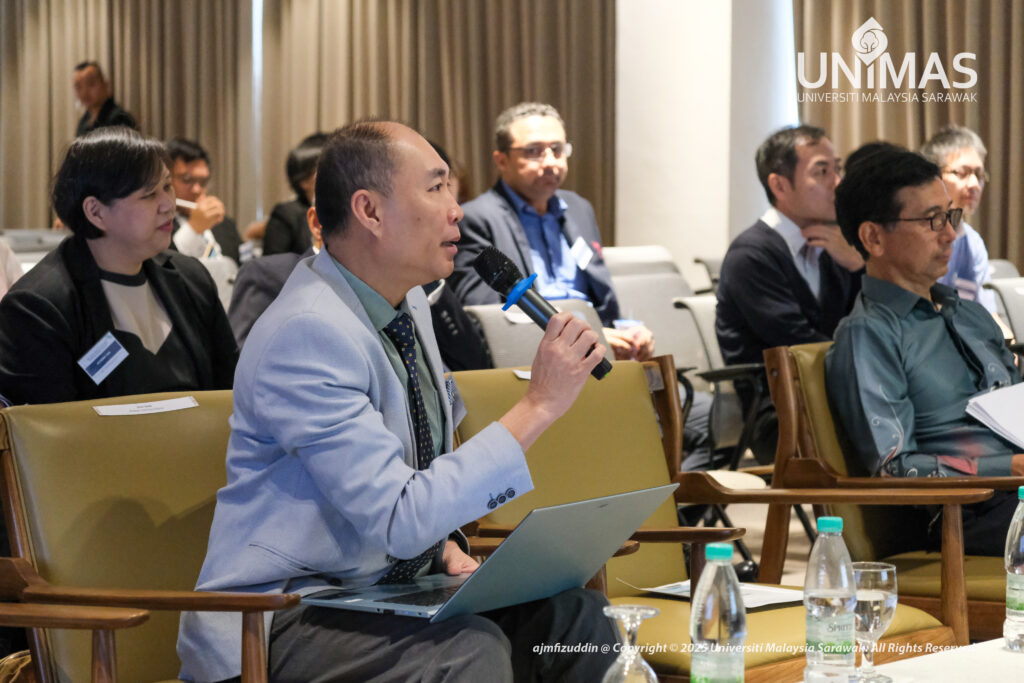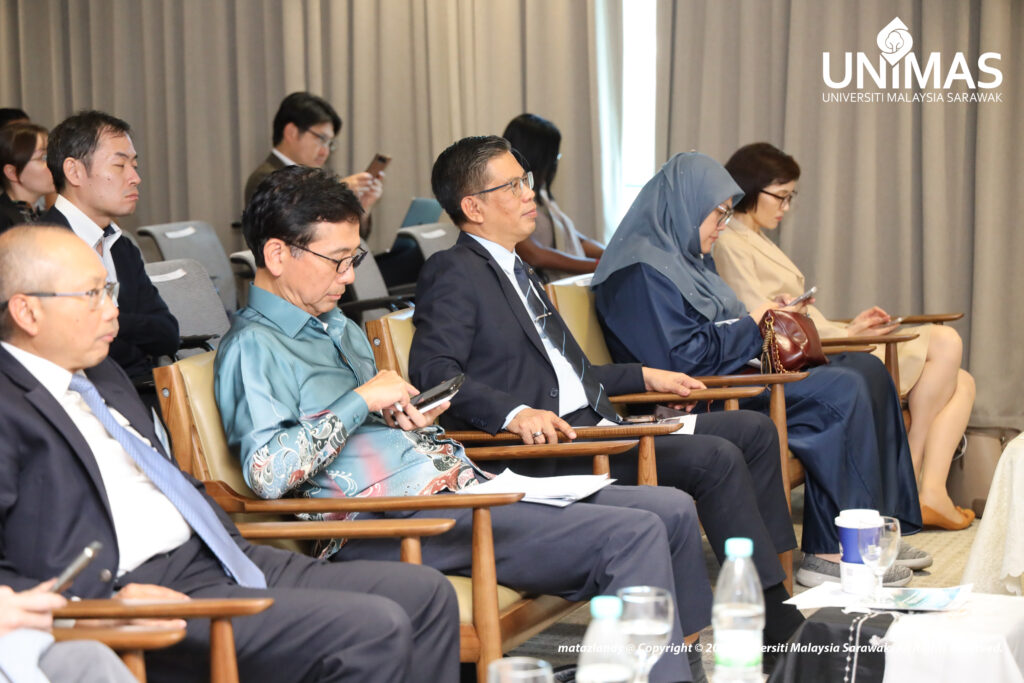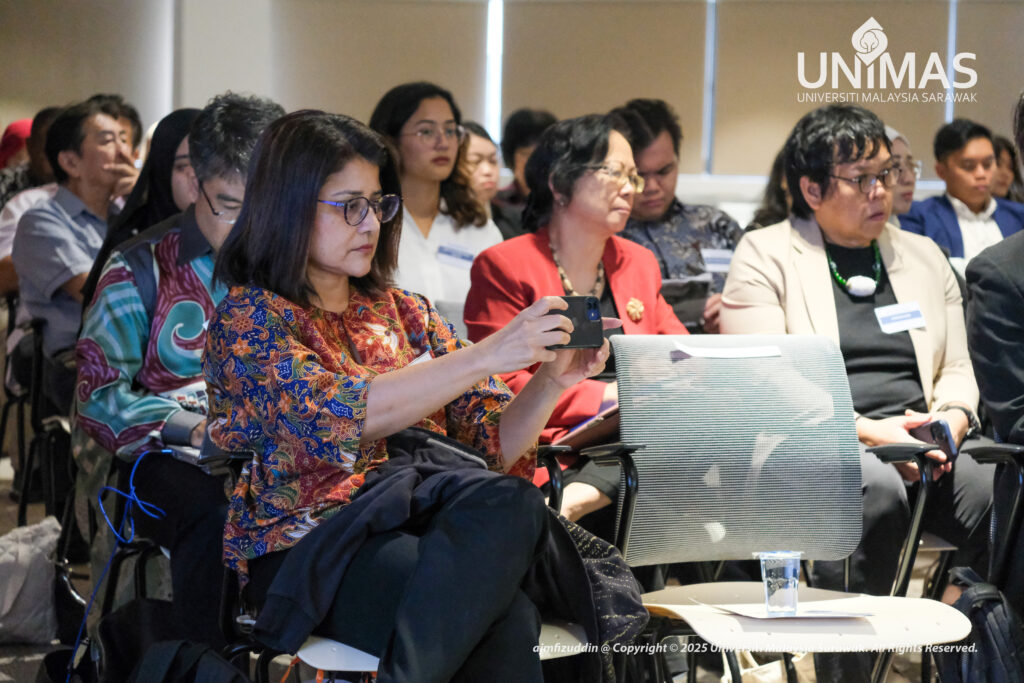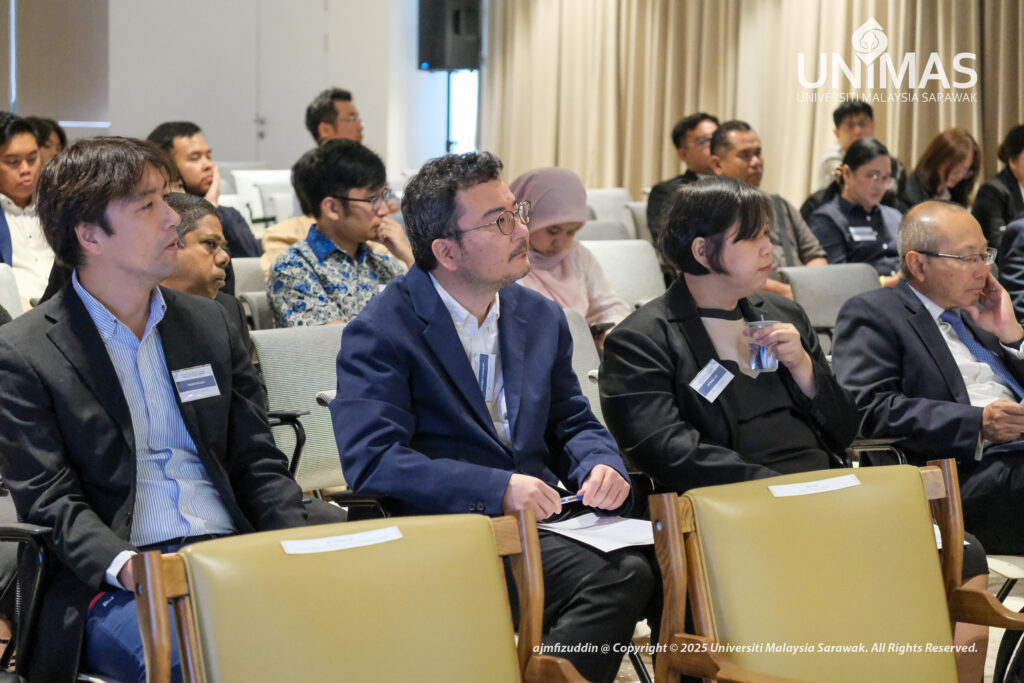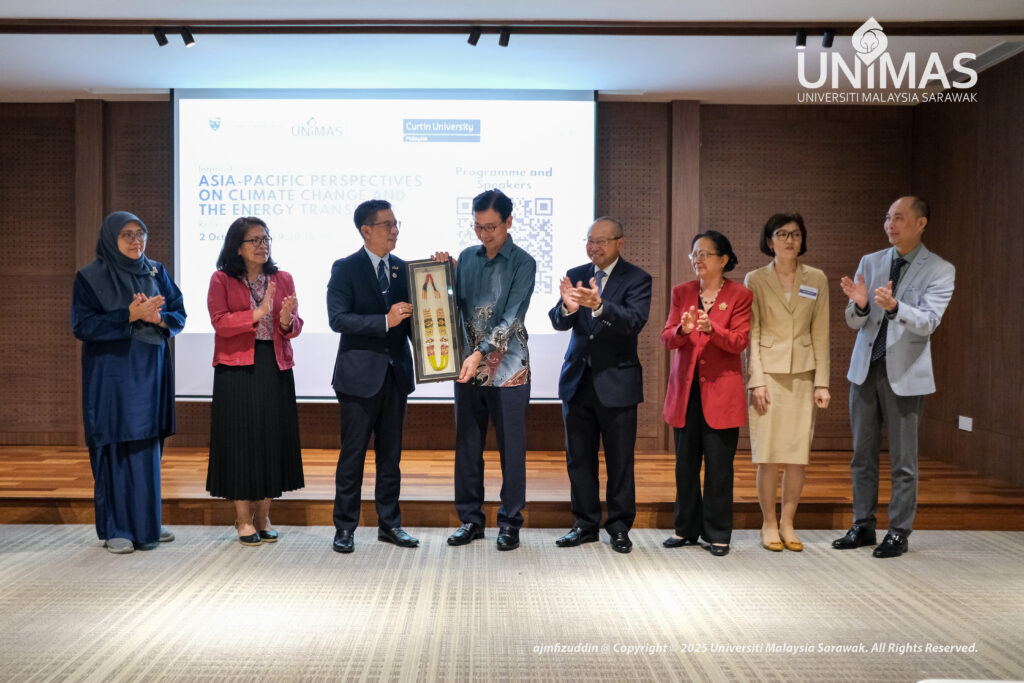
KUCHING, 2 October 2025 — UNIMAS, in partnership with the University of Malaya, Curtin University Malaysia, and Nagoya University, Japan, hosted the International Seminar on Asia-Pacific Perspectives on Climate Change and the Energy Transition: Reflections from Malaysia, Australia, and Japan at the Dayak Cultural Foundation, Kuching. The event brought together diplomats, academics, policymakers, and civil society representatives to share regional insights on achieving a fair and sustainable energy transition.
Supported by the Japan Society for the Promotion of Science (JSPS) and the Kajima Foundation, the seminar forms part of Nagoya University’s research programme on Building Climate Change Governance through Multistakeholder Cooperation: The Case of Low-Carbon Hydrogen.
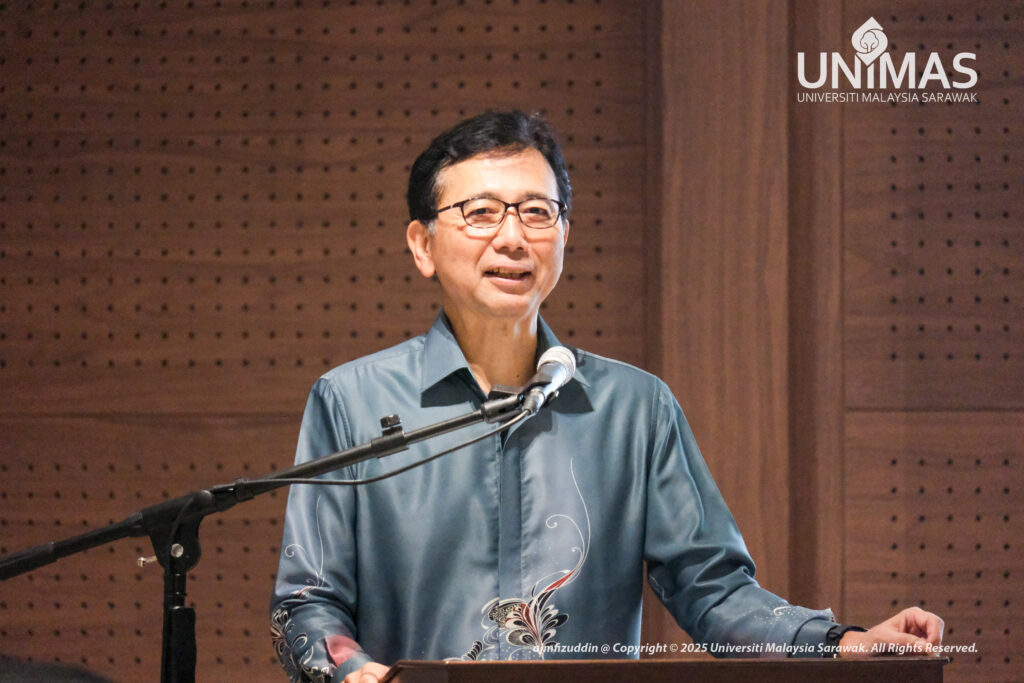
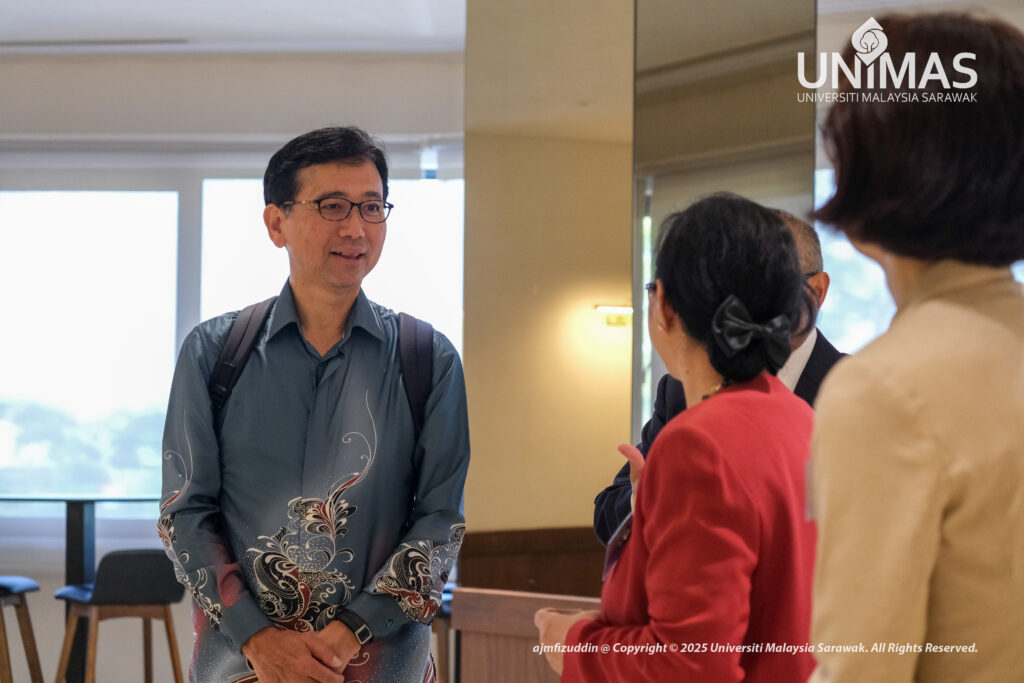
The conference opened with a keynote by His Excellency Mr. Noriyuki Shikata, Ambassador of Japan to Malaysia, who discussed Japan’s leadership in fostering regional cooperation through the Asia Zero Emission Community (AZEC) initiative. He emphasised Japan and Malaysia’s shared responsibility in advancing decarbonisation through innovation, policy coordination, and people-centred collaboration.
Exploring the Many Dimensions of Transition
The seminar’s four sessions showcased the convergence of policy innovation, technological advancement, financial leadership, and social inclusion. Each highlights the different facet of energy transition.
Session 1: Climate Change Governance and Policy
Experts including Dr. Sheila Lingam, Dr. Kentaro Tamura, Dr. Fang-Ting Cheng, and Ms. Lavanya Rama Iyer discussed emerging governance frameworks and international cooperation. They stressed that achieving net zero requires aligning national policies with global commitments while ensuring intergenerational and social equity.
Session 2: Technology and Innovation
Chaired by Assoc. Prof. Jundika Candra Kurnia, this session featured Prof. Ts. Dr. Shanti Faridah Salleh (UNIMAS), Dr. Hiroshi Machida, and Dr. Bridgid Chin Lai Fui. The speakers highlighted the potential of hydrogen systems, carbon capture and utilisation (CCUS), and biomass innovation in Malaysia’s transition to clean energy. They also underscored the need for partnerships that bridge research, industry, and policy.
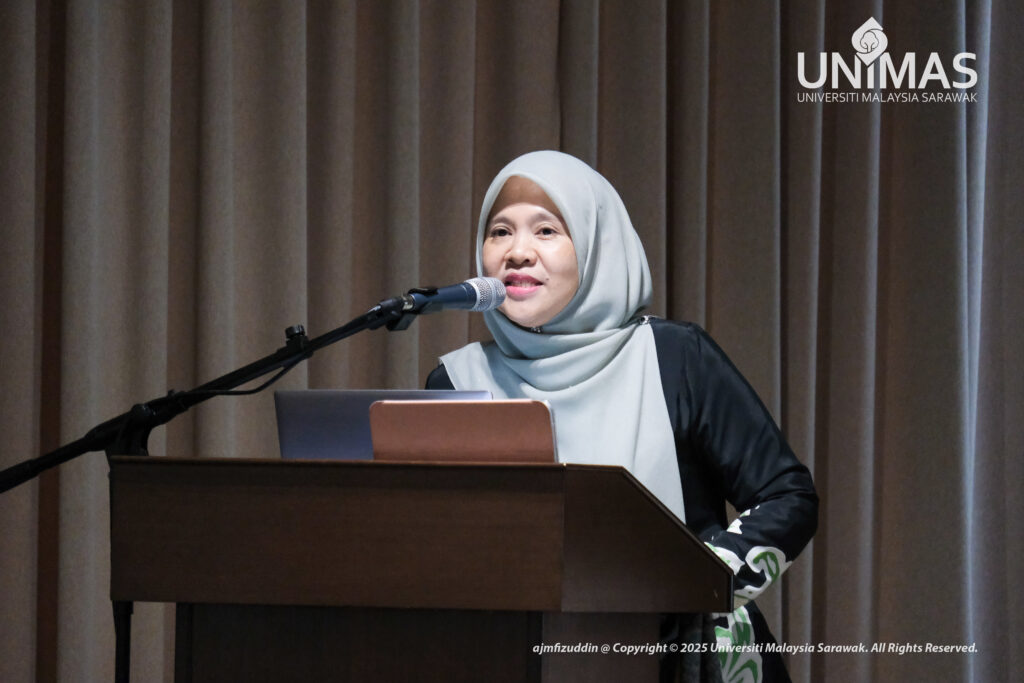
Session 3: Investment and Corporate Governance
Tan Sri Abdul Wahid Omar, Dr. Keiko Zaima, Dr. Petrina Tan, and other panellists explored how green finance, ESG frameworks, and corporate transparency are shaping private-sector participation in decarbonisation. They called for clear policies and long-term ambition to attract sustainable investment.
Session 4: Community Interests and Human Rights
Moderated by Assoc. Prof. Ramy Bulan, the final panel delved into the social and ethical dimensions of the energy transition. Panellists Prof. Satoshi Yamazaki, Prof. Isamu Okada, Prof. Poline Bala, and Assoc. Prof. Sharon Kaur highlighted the importance of social acceptance, Indigenous knowledge, and participatory governance in ensuring that the energy transition remains just and inclusive.
Photo 4: Panel discussion on community inclusion and social justice in the energy transition, moderated by Dr. Ramy Bulan, with contributions from Prof. Poline Bala and Prof. Isamu Okada.
Legal, Social and Moral Imperatives
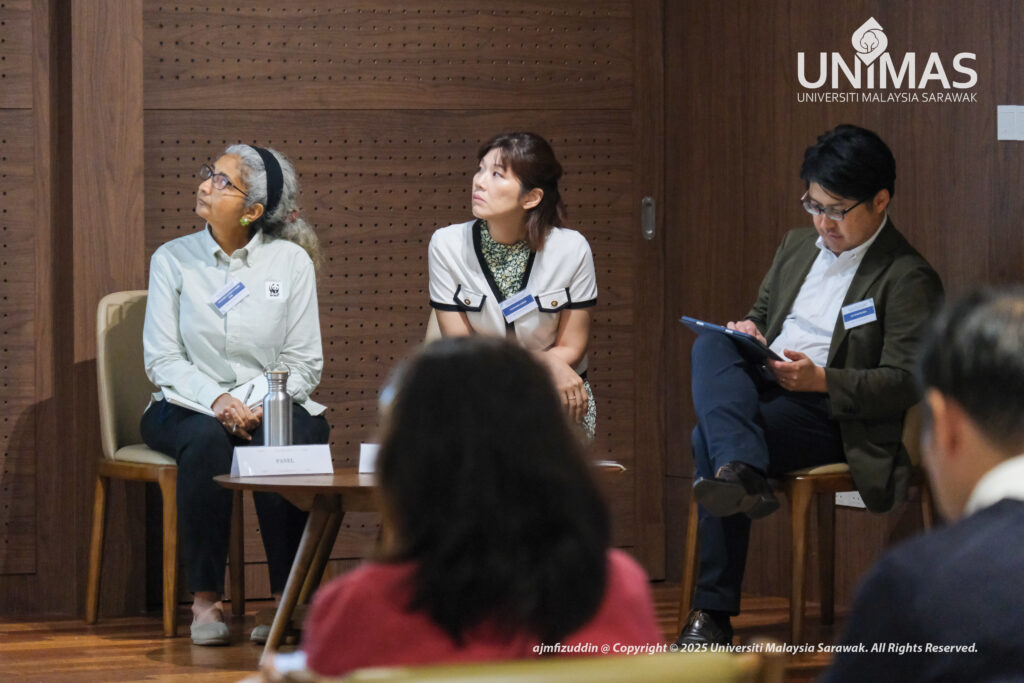
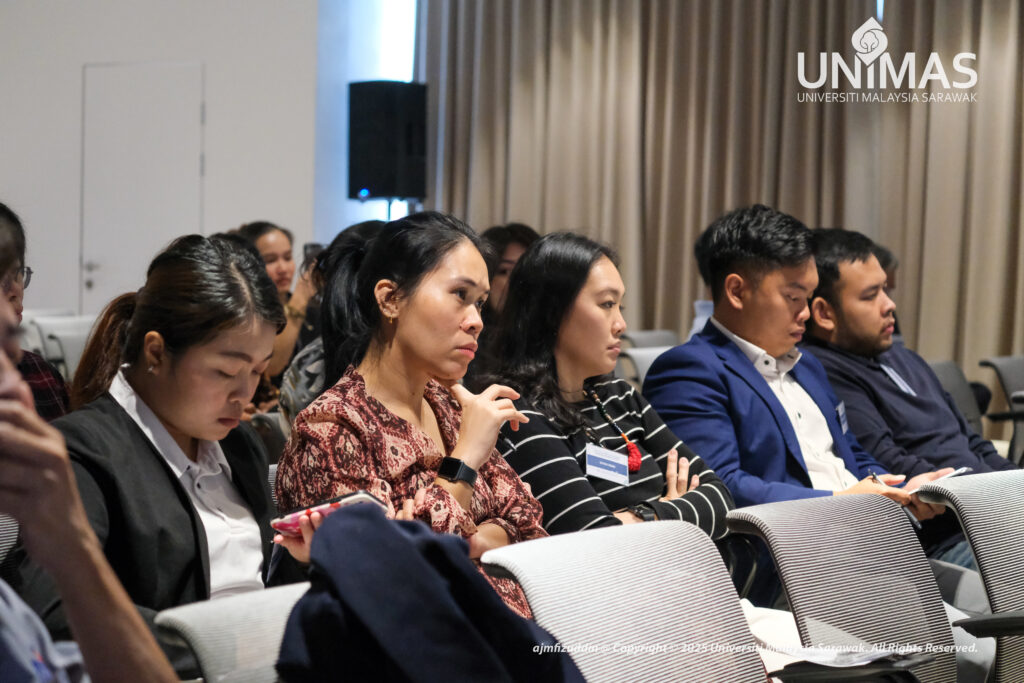
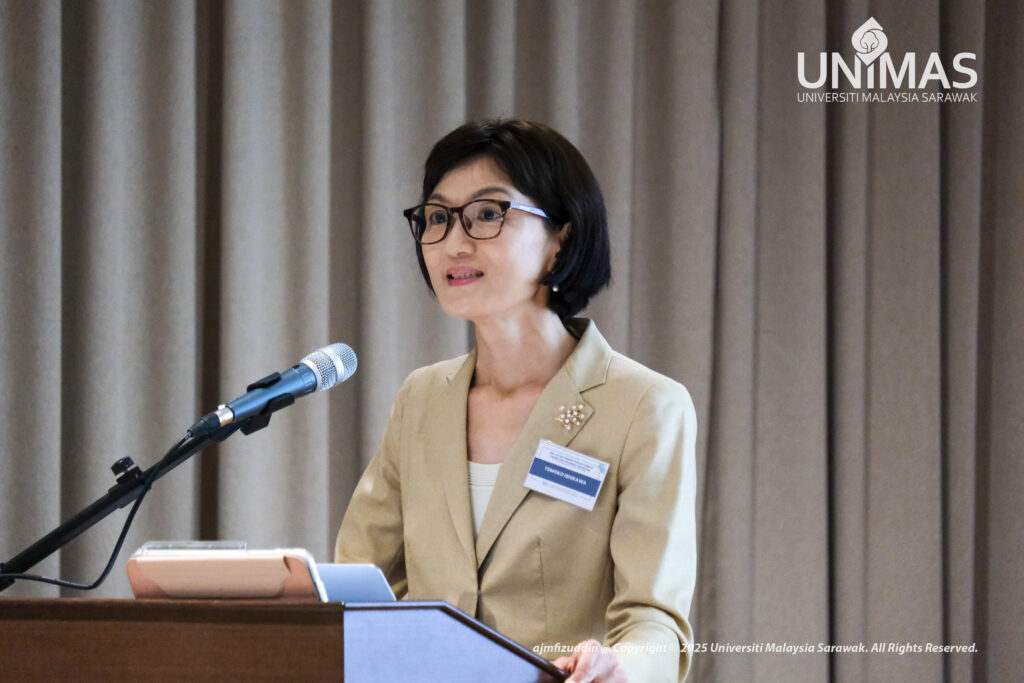
In her concluding remarks, Professor Tomoko Ishikawa (Nagoya University) framed the energy transition as both a legal obligation and a moral responsibility. Citing the recent advisory opinions of the International Court of Justice and the Inter-American Court of Human Rights, she noted that states and corporations alike now bear recognised duties to prevent and mitigate climate harm.
She cautioned that while the private sector’s compliance through sustainability reporting and environmental due diligence is growing; vulnerable communities often shoulder disproportionate burdens from energy transition projects. Referring to the Norwegian Supreme Court’s decision on Sámi reindeer herders, she reminded participants that social justice must remain central to climate action.
A Regional Platform for Cooperation
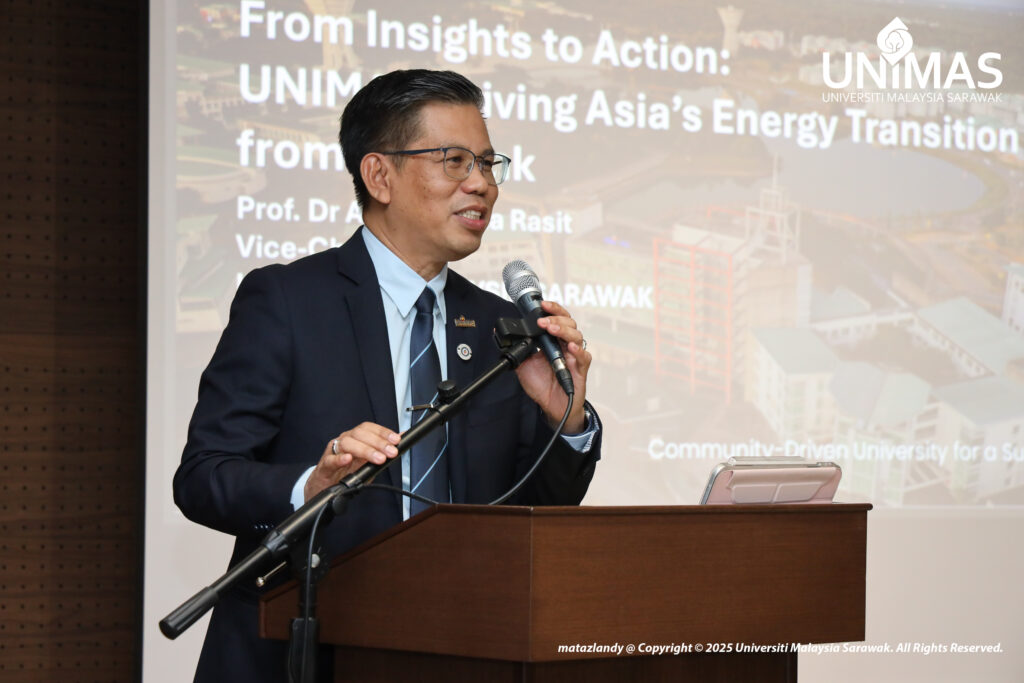
In his closing keynote, Professor Ahmad Hata Rasit, Vice Chancellor of UNIMAS, reaffirmed the university’s commitment to fostering regional collaboration and research excellence in sustainability and innovation. He emphasised that platforms such as this seminar strengthen not only academic ties but also shared responsibility for the planet’s future.
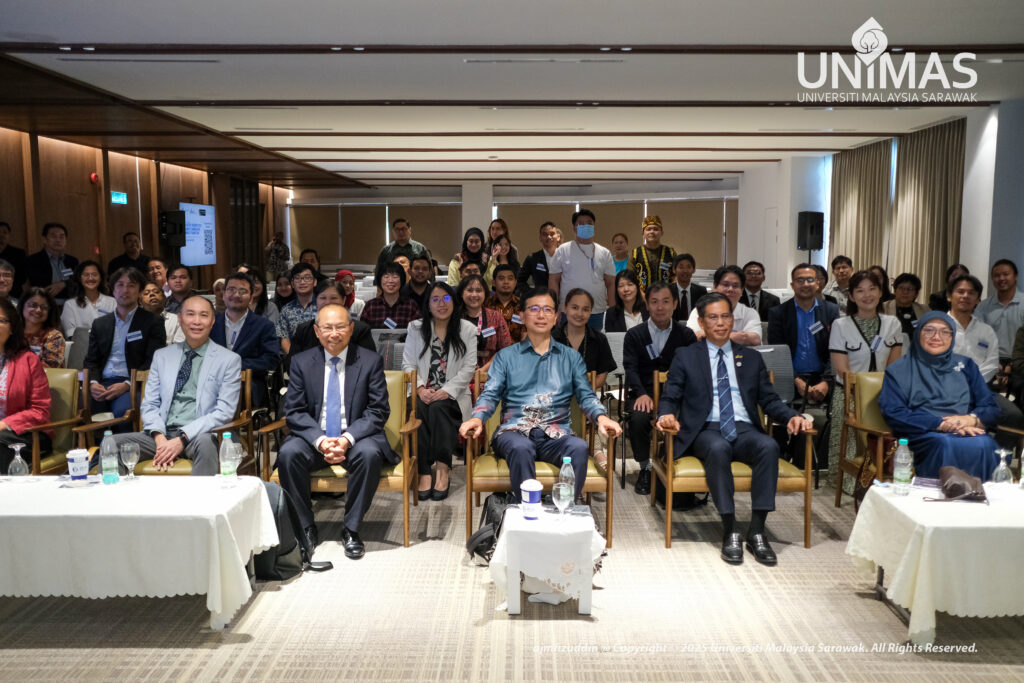
The event concluded with a renewed sense of solidarity among participants — academics, policy experts, and community leaders — all united by a common goal. In the words of Professor Ishikawa, “Let’s keep the dialogue alive and turn it into cooperation. It will build the foundation of hope — which, as Professor Jason Chuah reminded us at the very beginning, we need now to proceed.”
Terima kasih. Arigatō gozaimasu. Thank you.
About the Organisers
This event was jointly organised under the JSPS Topic-Setting Program to Advance Cutting-Edge Humanities and Social Sciences Research and supported by the Kajima Foundation Research Grant for “Empirical Study on the Social Acceptance of Low-Carbon Hydrogen Technology.”
It brought together leading institutions from Malaysia, Japan, and Australia to foster regional dialogue on climate resilience, energy justice, and sustainable innovation.
